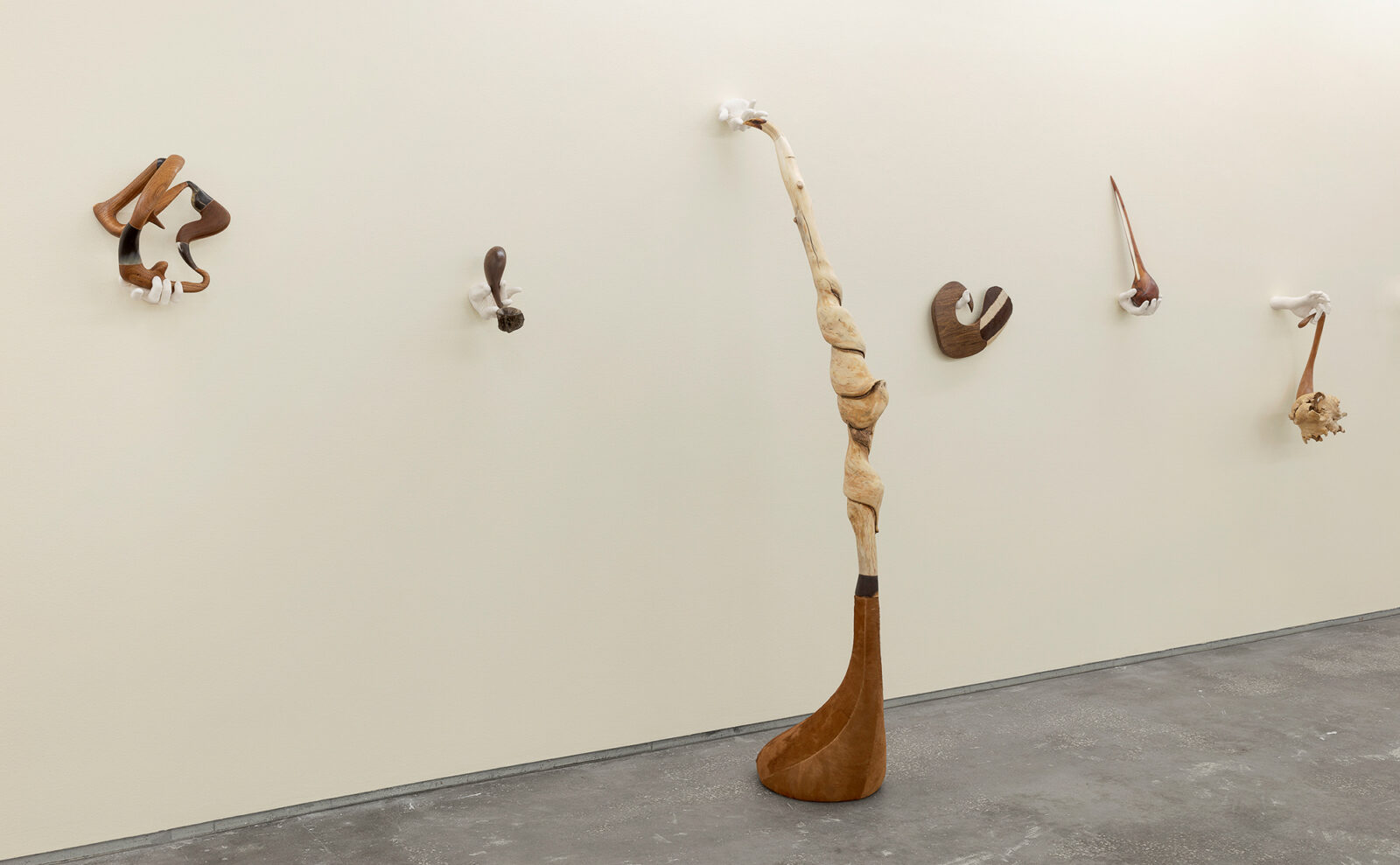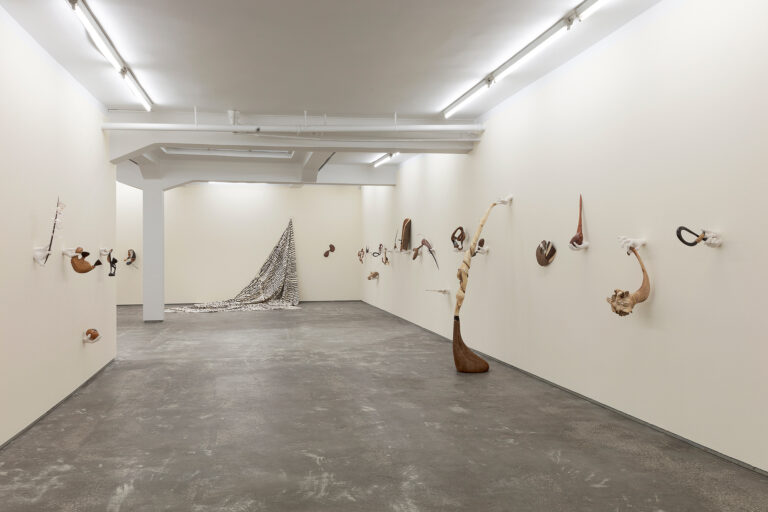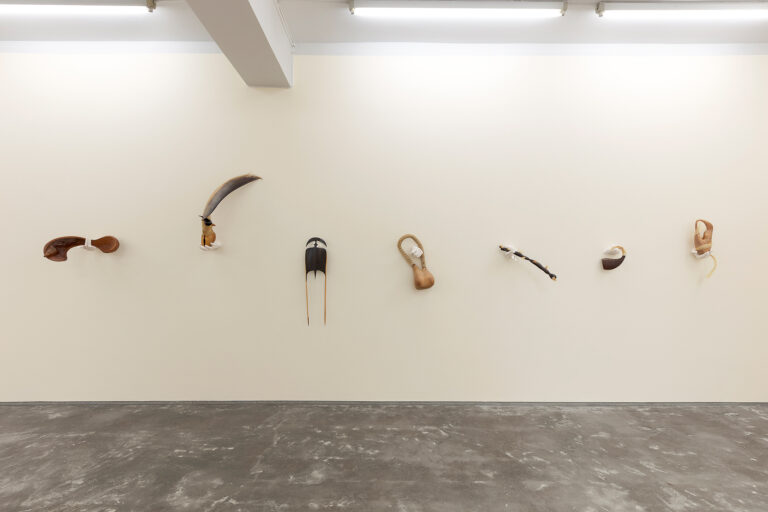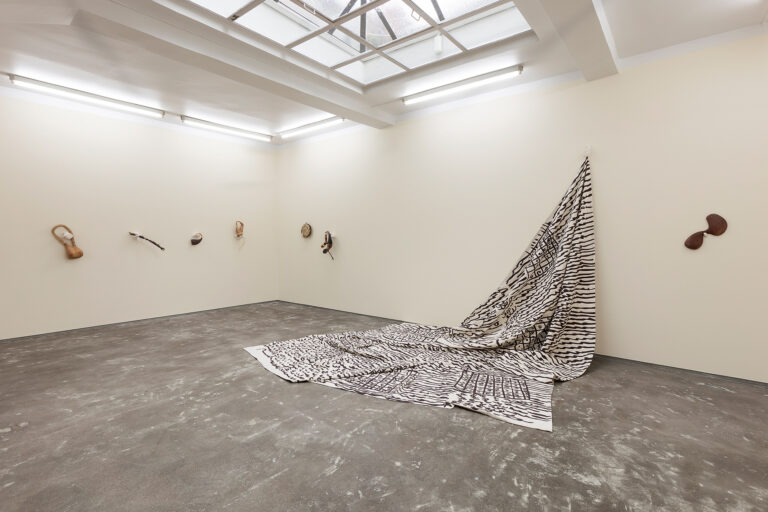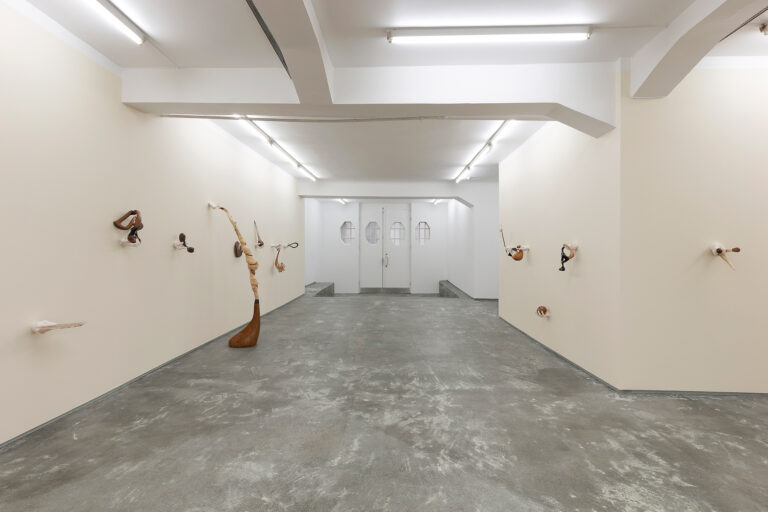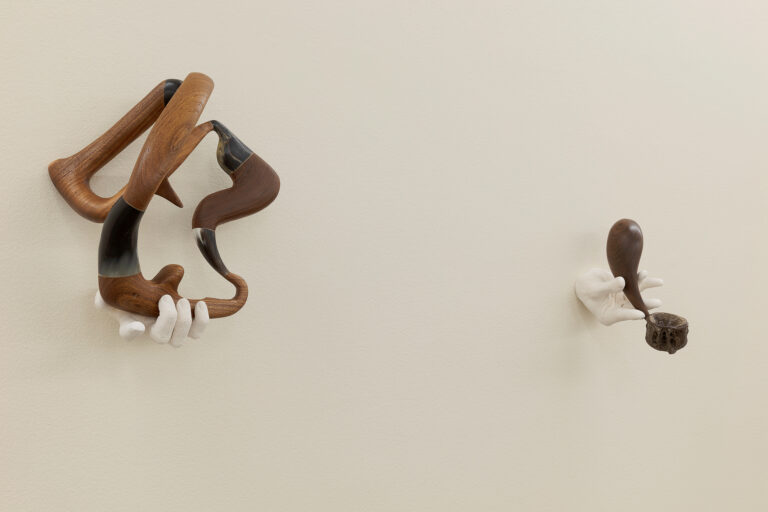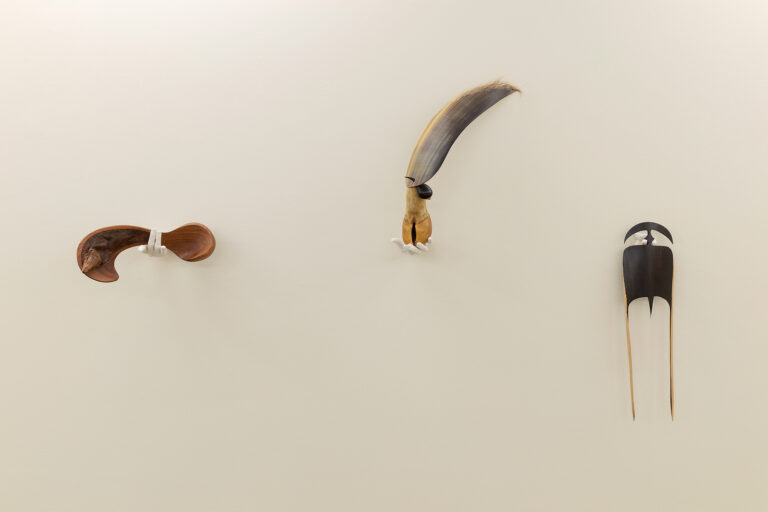Exhibition opening:
Friday 11 October, 18–20:00
"Whoever amongst you sees an evil, he must change it with his hand; if he is unable to do so, then with his tongue; and if he is unable to do so, then with his heart; and that is the weakest form of faith." — Abu Sa'id Al-Khudri reported that the Messenger of Allah (ﷺ) said.
Rooted in Umar’s experiences growing up in environments that were oppositional to each other—Sufism and Wahhabism—Glowing Phalanges is the synthesis of an artist’s life spent tending to all its spiritual possibilities. Umar, who grew up in Mecca, Saudi Arabia, shouldered two burdens in his early life: contending with his queerness by doing everything possible to grant himself a place in paradise, and protecting his Sufi family from the dangers and retributions of their spiritual practices—namely their use of rosaries of up to one thousand beads.
According to Wahhabi doctrine, the use of prayer beads (sibha) is forbidden, seen as an appropriation from other religions. Instead, believers are instructed to count their prayers using their fingers on their right hand—14 phalanges, with the thumb’s two phalanges counted as 3 to make 15 counts of prayer. This practice is said to make one's hand glow on Judgement Day, a symbol of devotion and reward from Allah.
If the advice offered during his youth was, "If you want to count prayers, then use your hands," then Umar's response during adulthood is Glowing Phalanges. Drawing from Islamic teachings—"Whoever amongst you sees an evil, he must change it with his hand"—the exhibition reflects on the physical and spiritual dimensions of worship, where the act of using one’s hands for prayer holds deeper significance. Glowing Phalanges is a reflective journey through spirituality, identity, and personal reclamation. This exhibition is a close reading of all the paths taken by one person toward faith, identity, and spiritual possibility, and the destinations rejected (paradise) and found (spiritual agency) along the way.
Umar’s hands were shaking as he made his first amulet—one of four that were meant to represent his Sudanese self at a Pride parade—as they represented his first foray into spirituality as a birthright and a spiritual download without the limitations imposed by religious practice. Sourcing materials such as leather, ebony, and ivory, Umar strips scavenged objects—often found as antiques or souvenirs across Norway—of their histories of exploitation and abuse while honoring their backgrounds. He returns these materials to their original cultural relevance, imbuing them with the weight of a newfound spirituality, an accessed birthright, and an explored terrain—his. This exhibition showcases the results of this practice: amulets created over time, beginning with fifteen in 2018, followed by sets of 33 and 99, with a goal of creating one thousand - a nod to the Sufi rosary - within the decade.
– Ruba El Melik
Ahmed Umar (b.1988, Sudan) is a cross-disciplinary artist living and working in Oslo. He received his MFA degree in medium and material-based art from the Oslo National Academy of the Arts in 2016.
His work is in public and private collections including The National Museum of Norway and Kistefos. In 2023, Umar presented solo exhibitions Glowing Phalanges at Kunstnernes Hus and Bergen Kunsthall in Norway. He was also nominated for the Lorck Schive Kunstpris at Trondheim Kunstmuseum. In 2024, Umar is participating in the Venice Biennale and was the recipient of the Baloise Art Prize in the Statements sector at Art Basel. His latest work Truth Bears No Scandal (الـواضِح مو فـاضِح) is currently presented at the Toronto Biennial of Art.
Ruba El Melik is a writer and researcher from Sudan. In the publishing sphere, her work has included editing for the literary journal, Mizna: SWANA Lit + Art. Her writing can be found in Africa Is Now, Acacia, Mizna, poetry.onl and LOLWE. She is the co-author of (Un)Doing Resistance: Authoritarianism and Attacks on the Arts in Sudan's 30 Years of Islamist Rule (Andariya, 2022) with the journalist Reem Abbas.
